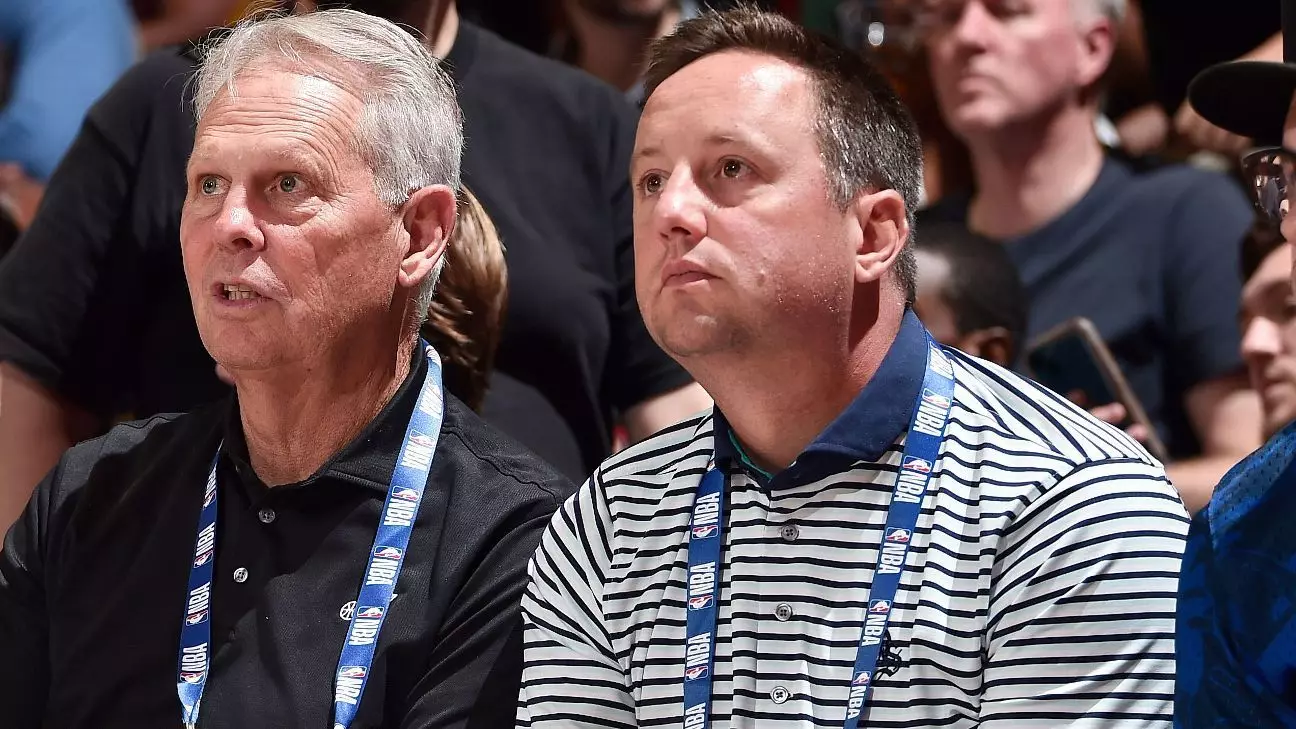In a decisive move, the Utah Jazz have appointed Austin Ainge as their new president of basketball operations, a decision that reverberates throughout the NBA landscape. Stepping away from the Boston Celtics, where he honed his skills over a remarkable 17-year tenure, Ainge comes with a strong pedigree and an acute understanding of basketball management. His hire isn’t merely a nod to legacy, being the son of team CEO Danny Ainge; it signifies the Jazz’s commitment to revitalizing their organization at a critical juncture in their history.
Team governor Ryan Smith’s excitement about Ainge’s arrival reflects a clear vision for the future. His belief that Ainge and general manager Justin Zanik will complement each other effectively indicates a strategic approach to leadership that cherishes diverse strengths. This synergy is vital not just for day-to-day operations but also for long-term success in a league characterized by rapid growth and unforgiving competition.
A Legacy of Excellence
Austin Ainge’s trajectory in the Celtics’ organization speaks volumes about his capabilities. Initially taking charge of the team’s G League affiliate, he rapidly transitioned to a front-office role. His ascent to assistant general manager showcased a knack for talent evaluation and player development, both critical for a franchise aiming to return to prominence. Under his influence, the Celtics have not only featured consistently in playoffs but have also secured the NBA championship, establishing themselves as perennial contenders.
Bringing such a talent to the Jazz could well be a turning point. The strategic acumen he cultivated under Brad Stevens and his father will serve as valuable assets as he attempts to reforge a team talent structure that fell woefully short last season. The Jazz’s record of just 17 wins highlights the need for an innovative approach to recruiting and talent management that Ainge is poised to deliver.
Building from the Ground Up
While Ainge arrives with an impressive résumé, the road ahead is fraught with challenges. Utah finds itself in a rebuilding phase, buoyed by some promising young talent like All-Star Lauri Markkanen. However, last season’s performance marks a stark contrast to the ambitious nature of Ainge’s appointment. Instead of inheriting a playoff-ready roster, he faces the task of transforming a team that holds the dubious distinction of recording the worst record in franchise history.
Drafting decisions will be pivotal. With significant picks in the upcoming NBA Draft, including the fifth overall and the 21st—thanks to a prior trade involving Rudy Gobert—Ainge’s ability to identify and secure promising talent will be under intense scrutiny. The Jazz’s roster dynamics, populated predominantly by younger players, set a stage that demands patient yet strategic leadership. Ainge’s experience with developing talent could help create a cohesive unit that understands the tenets of teamwork essential for success.
A Bold Vision for the Future
The enthusiasm expressed by Austin Ainge emphasizes a forward-looking approach that resonates throughout the Jazz’s organization. His ambition to bring a championship-caliber program to Utah does not merely stem from familial ties or past accolades; it emerges from a lifetime of obsession with the game—studying teams, chemistry, and all factors essential to winning. The Jazz are not merely seeking a capable executive; they are investing in a hopeful architect for their basketball future.
His relationships and established trust within the league will also be instrumental as he navigates trades, acquisitions, and overall team strategy. Moreover, the collaborative dynamic with Zanik, as emphasized by Smith, could provide Utah with the versatility needed to adapt to the fast-paced changes of the NBA while maintaining a coherent vision.
Cultivating a Winning Culture
Above all, Ainge’s role will involve instilling a culture of excellence within the Jazz organization. Teams are often defined by their ethos, and the fundamentals Austin Ainge brings will be crucial. His experiences with the Celtics have shown that a winning culture stems from accountability, resilience, and teamwork. By fostering these values, Ainge can produce a generation of players who not only excel individually but also contribute to a collective objective of success.
As the Jazz begin this new chapter, the landscape of the franchise is teetering on the brink of transformation. If Austin Ainge can leverage his extensive experience and foster a culture of growth, the Utah Jazz may not just aim to be competitive; they could very well set their sights on championship aspirations once again. The coming years will surely be telling as the Jazz embark on this profoundly ambitious journey, merging a legacy of basketball with a fresh vision forged from innovation and grit.

